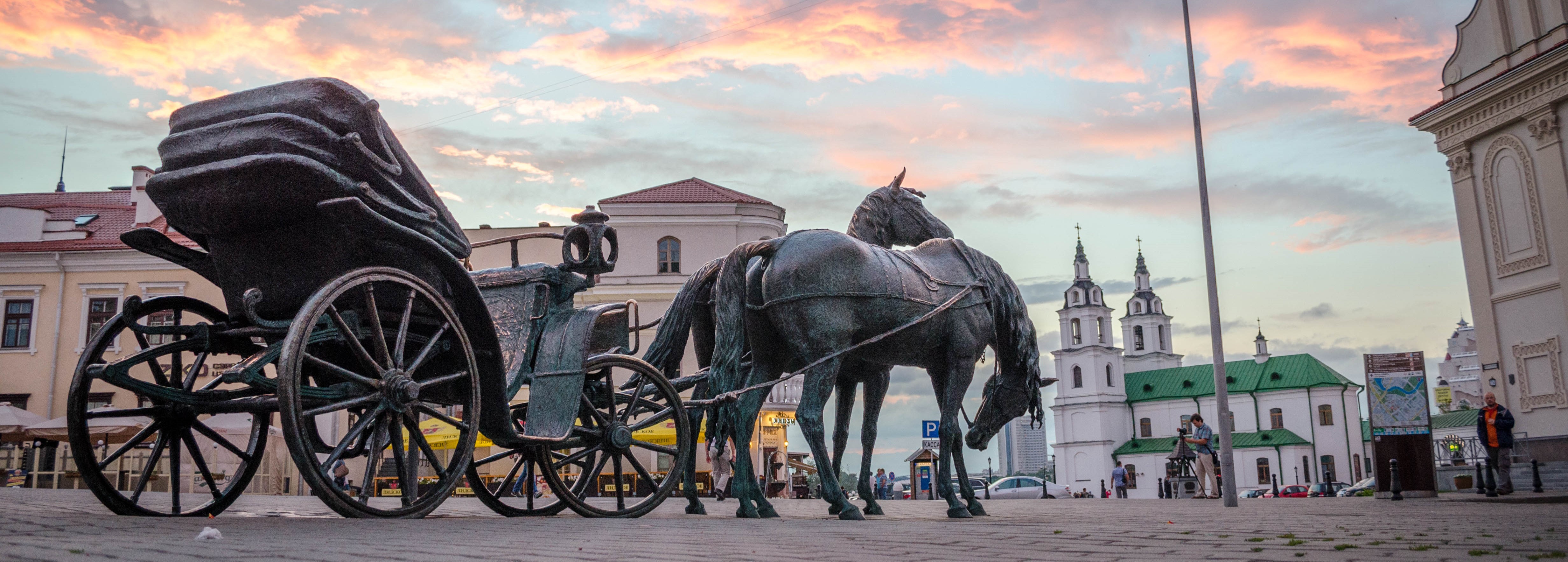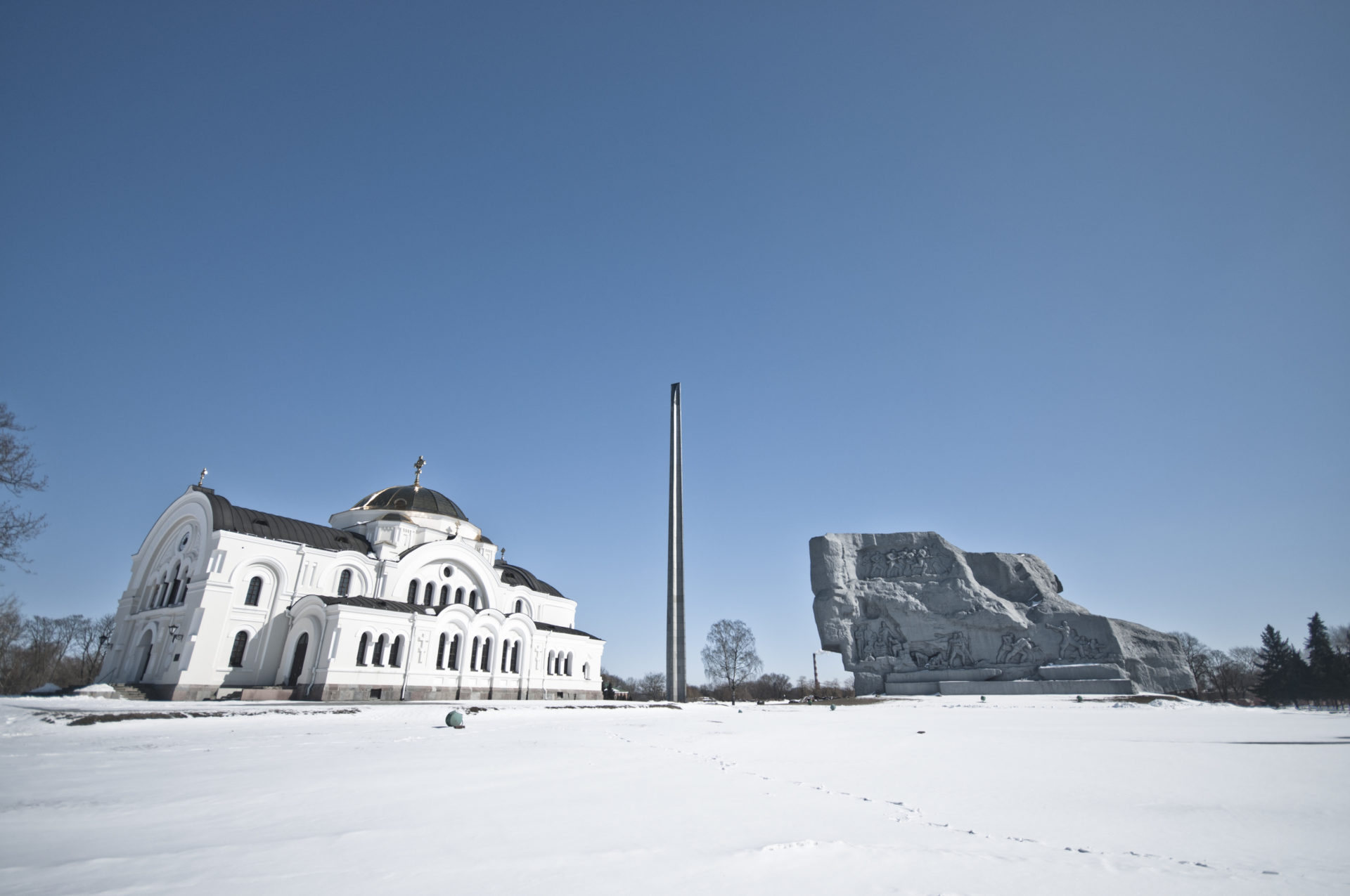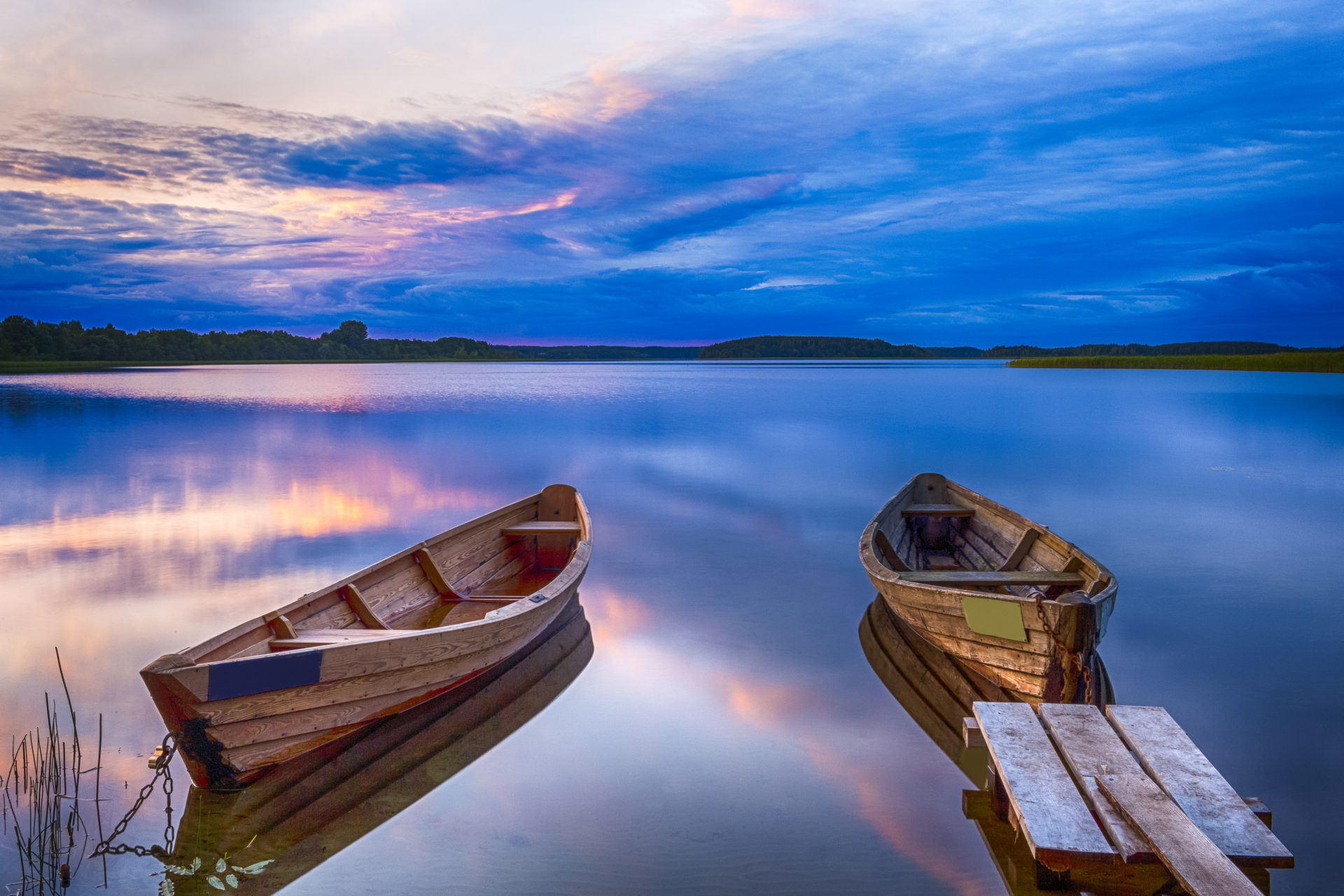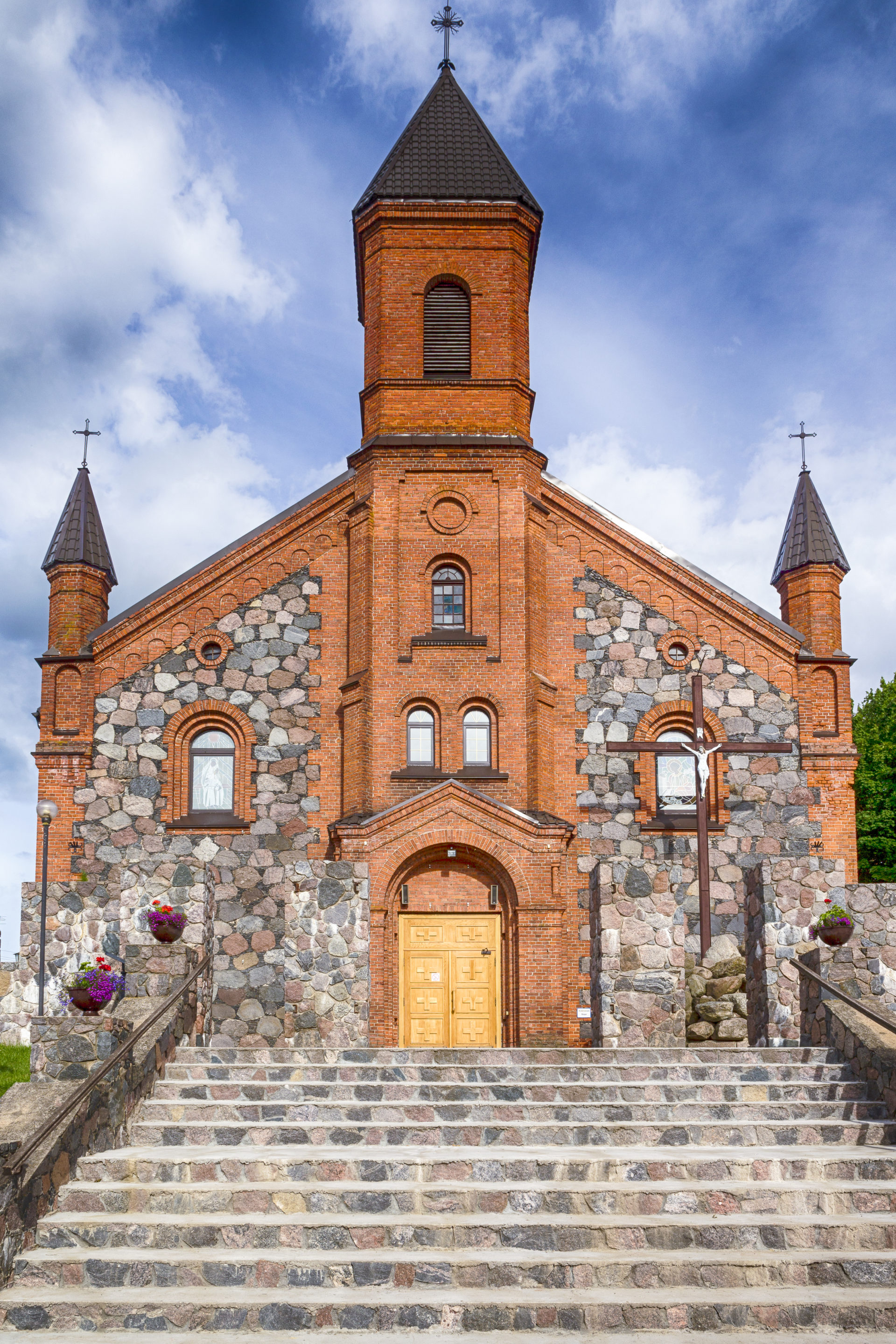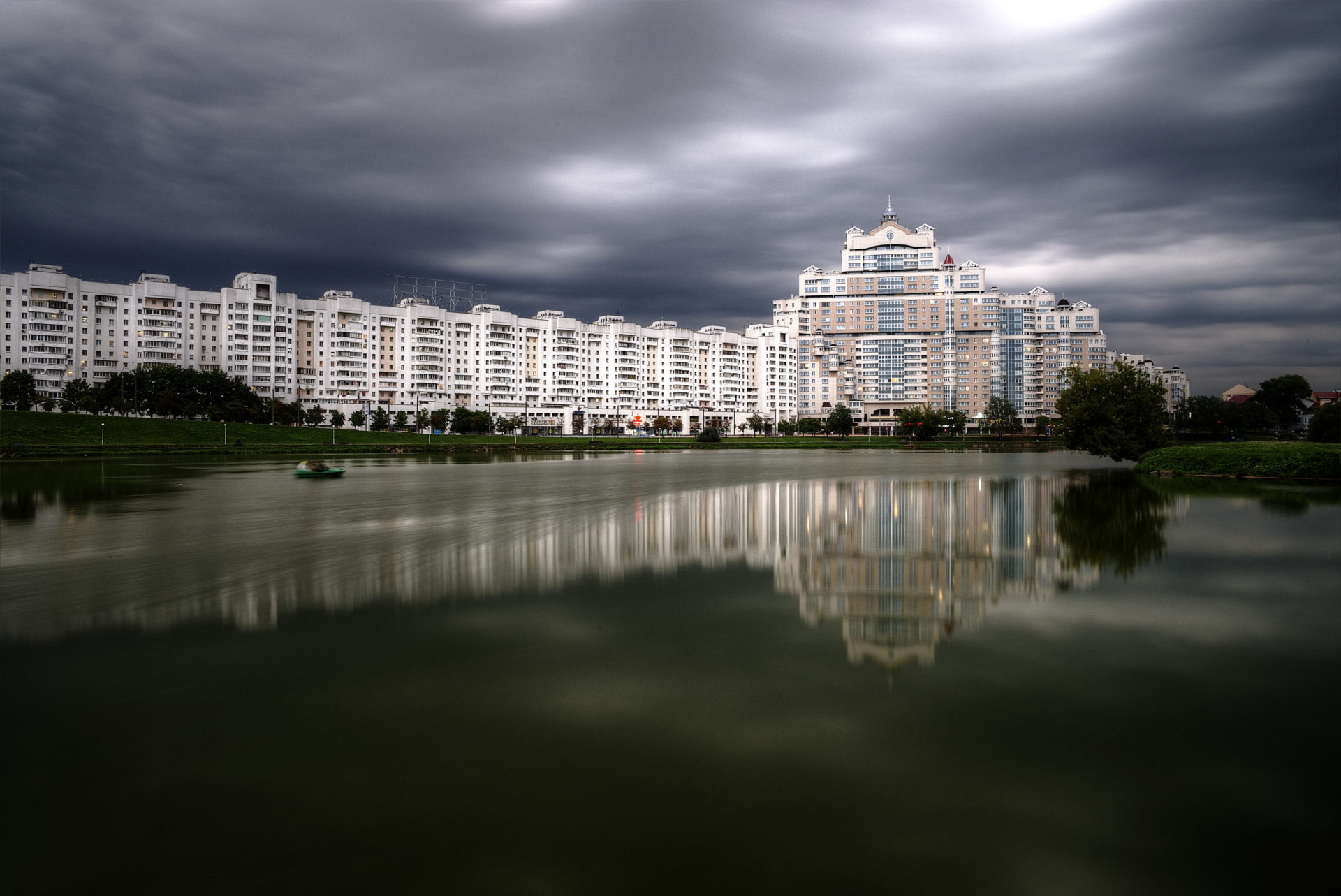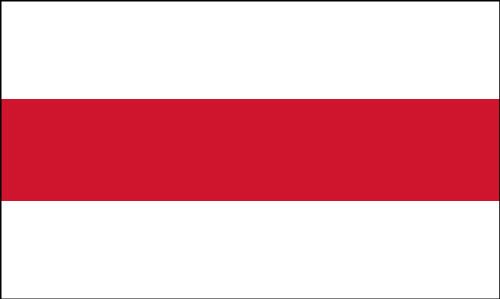
Belarus
- Governance: Republic, unitary state
- Capital: Minsk
- Population: 9.3 million
- Religion: Christianity, Catholicism
- Language: Belarusian and Russian (both official)
- Location: Eastern Europe
- Democracy index: Not free, 8/100
- Human Rights Index (acc. to the Belarusian Helsinki Committee): 2,6 *
Belarus is a former Soviet republic, located in the middle of Europe. The country has historically been at a crossroads between the Russian Federation in the East and the European Union in the West. Today one can say with certainty that Belarus is not a democracy and lacks independent institutions. Civil society is repressed, activists are pursued, freedom of expression, assembly and association is extremely limited. As of January 2023, the number of political prisoners exceeds 1400 people.
The population of Belarus consists mostly of middle class, well-educated and well-travelled people. Before the events of 2020, the country had one of the biggest pools of modern IT-specialists in Europe. However, after more than 30 years as an independent state, Belarus has yet to escape its Soviet past: The government is built on an authoritative power system, where the idea of collective, state-controlled communism as an efficient form of government remains. In addition, the Belarusian Committee for State Security (KGB) is still active and has a key role in protecting the regime and carry out espionage.
Development since 2020
In 2020, amidst simmering discontent, the country held its sixth presidential election since independence. In the run up, several high-profile candidates were either imprisoned on trumped up charges or forced into exile by the regime.
The opposition united behind Sviatlana Tsikhanouskaia, the wife of Siarhei Tsikhanouski – one of the imprisoned presidential candidates. She successfully registered as a candidate for the presidency and gained massive popular support in society.
The independent exit polls showed that Tsikhanouskaia won the election, but the Central Election Commission awarded Lukashenka the usual result of more than 80% of the votes. This sparked the country’s by far largest protests since independence. Massive demonstrations appeared in all major cities and in numerous towns and villages across the country, and people from all economic classes, faiths, and generations demanded the president’s resignation.
Many thus consider the 2020 presidential election as a turning point for Belarusians’ struggle for democracy.
The protest movement was, however, brutally supressed. Thousands of allegations of indiscriminate beatings, torture and inhumane treatment were reported, and several demonstrators were killed. Tsikhanouskaia and several other protest leaders were forced into exile, others were given long prison sentences.
Tsikhanouskaia is now leading the United Transitional Cabinet, which opposes the Belarusian regime, creates financial, social and cultural strategies and keeps Belarus on the international agenda.
Since Lukashenka’s coming to power in 1994, Belarus has always had a high number of prisoners of conscience. After 2020, however, the number has multiplied. One of the most prominent political prisoners in the country is Ales Bialiatski, a co-laureate of the Nobel Peace Prize of 2022.
The Belarusian regime has also arranged several sham referendums over the years to accommodate Lukashenka’s political ambitions. The latest of which was the February 2022 referendum, which introduced several changes to the Belarusian constitution.
One of the constitutional changes returned the two-term limit for presidents, which was removed in 2004 to facilitate Lukashenka’s continued presidency. The 2022 changes nevertheless allowed Lukashenka to end his current term and be elected yet again, potentially letting him stay in office until 2035.
Lukashenka has also made sure that if he is replaced, he will not be held responsible for his deeds. A new article in the constitution states that: A president who has completed the exercise of his duties cannot be held responsible for any acts committed in connection with the performance of the duties of the president.
Another significant amendment to the constitution concerns the article on the neutrality of Belarus and prohibition of the deployment of nuclear weapons on its territory was changed. Following the new constitution, Belarus is now neither a neutral nor a nuclear-weapon-free country.
* Human Rights Index by the Belarusian Helsinki Committee
Belarus and the war with Ukraine
From the very first days of the 2022 invasion of Ukraine, Belarusian territory was used by Russia as a staging ground for their war of aggression. Russian missiles were also launched from Belarusian airbases, and local hospitals were used to treat injured Russian soldiers.
Belarusian participation in Russia’s war of aggression has led to worldwide condemnation of the leadership in Minsk, and many of the sanctions imposed on Russia also apply to Belarus.
Tsikhanouskaia, together with the Coordination Council, has created an anti-war headquarters that offers aid to Ukraine. They also work with changing the international community’s perception of Belarus, and encourages to distinguish between the regime, which is essentially an accomplice in the military aggression, and ordinary people, who are mainly against the war. According to a report by the Committee for the Investigation of Torture, more than 1,100 people were arrested in Belarus in connection with anti-war actions on February 27 and 28, 2022, alone.
Still, Belarusians receive a lot of criticism, especially from Ukrainians, for not taking a more active role in the fight against the regime’s support for Russia’s war of aggression.
It should be noted, however, that even though Lukashenka’s machinery of repression is severely brutal and deters many from protesting; there are numerous groups and initiatives in Belarus and abroad, who do whatever is in their power to actively obstruct the regime and stop the war.
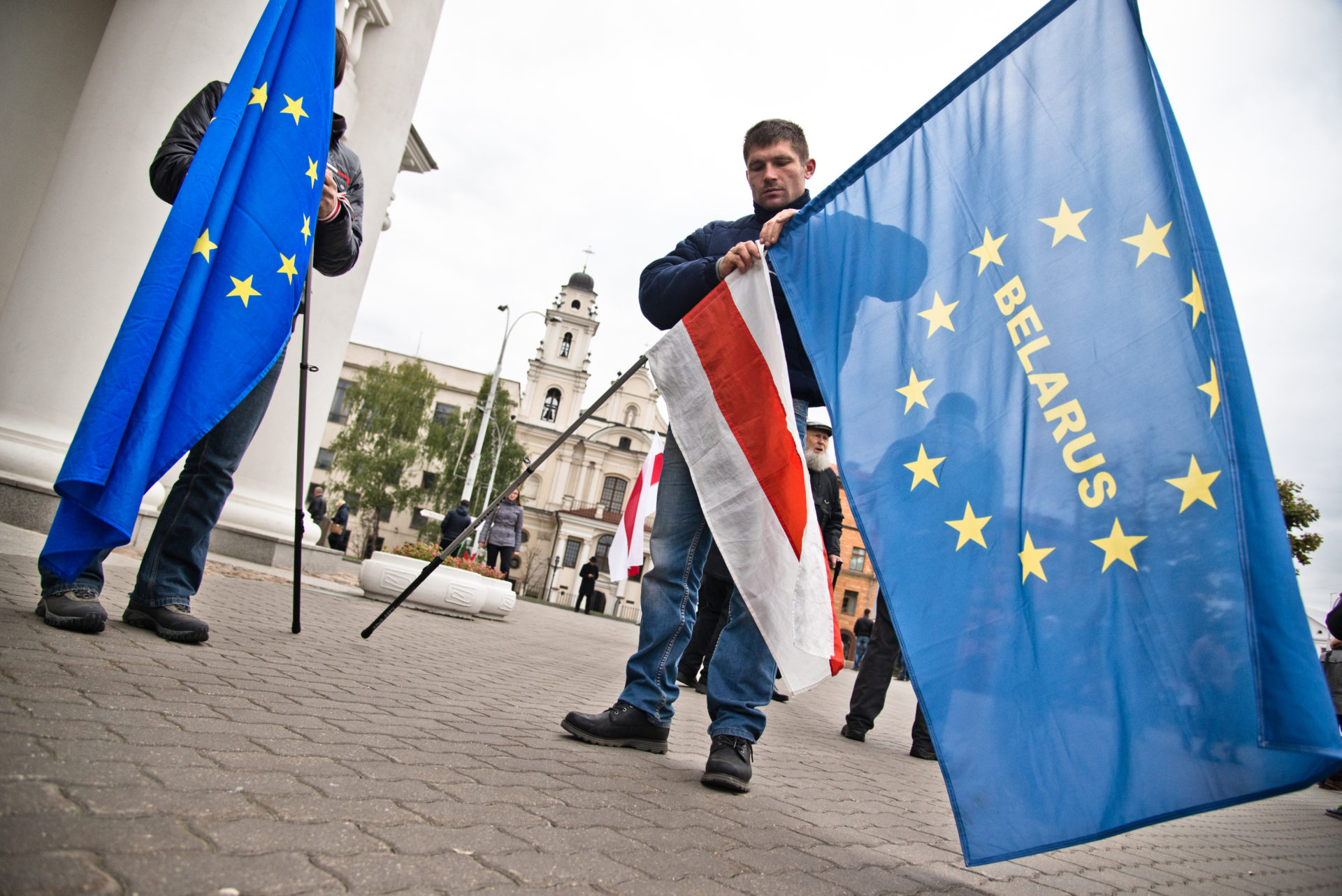
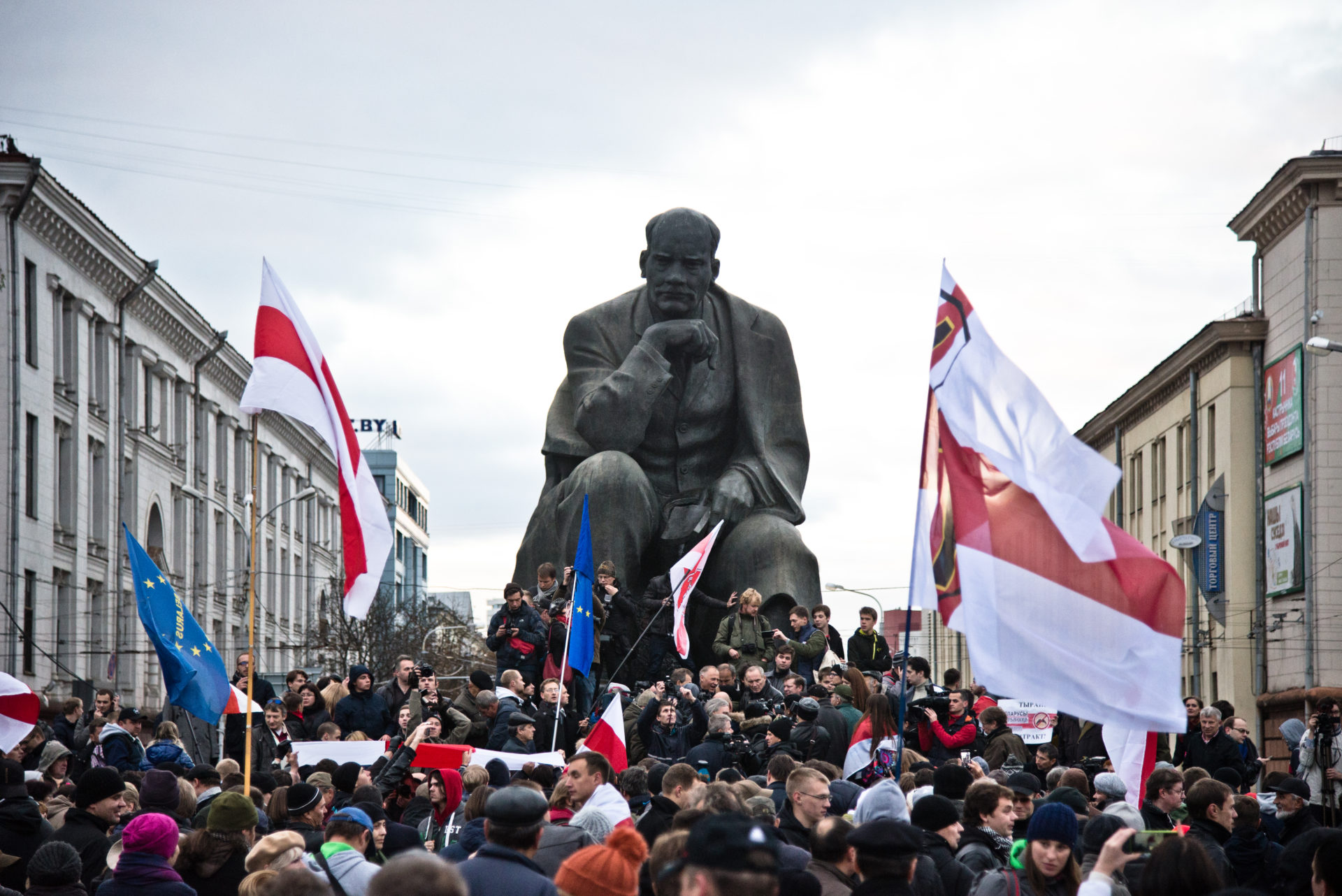
Belarus under Lukashenka
The first and only free presidential elections in Belarus were held in 1994. Since Lukashenka took office that year, the country has been in a constant struggle between two opposing forces: On one hand, the state apparatus under an increasingly authoritarian president. On the other, the vibrant and democratically oriented Belarusian civil society, which for decades has been trying to defend its freedom of speech, freedom of assembly and right to free elections.
As the opposition against Lukashenka has steadily grown during his more than 28 years in power, so has the security apparatus of the regime. Undemocratic methods – such as violence, rigged elections and control of state media have become widespread.
The first wave of protests of independent Belarus occurred in the second half of the 1990s, while Lukashenka attempted to console his grip on power: The constitution was changed, many political parties and religious organisations were banned, and the security apparatus was strengthened. Simultaneously, peaceful demonstrations were brutally suppressed by the police, and renown politicians and journalists who voiced their opposition to the president were either sent to prison, killed, went missing or forced into exile.
New protests erupted after the presidential elections of 2001, 2006 and 2010, all of which were deemed neither free nor fair by independent observers. During the protests, increasingly large numbers of the opposition were arrested, subjected to torture and inhumane treatment by the police, followed by international condemnation and some sanctions.
Discontent in Belarus was subdued during the first years after the Ukrainian Revolution of Dignity (2013-14) that resulted in a war. This was mainly due to the fear of Russian military invasion.
In 2017 in order to bolster the faltering economy, the regime introduced an unpopular law, penalising the unemployed with extra taxation. Colloquially, it became known as the “parasite tax” and sparked a wave of protests in Belarus.
While earlier movements had largely been limited to youth and urban middle-class citizens in Minsk and regional centres, the 2017 “We are not parasites”-movement included many generations and occurred across the country. The protests did not only lead to a rollback and downscaling of the new legislation, but also laid the foundation for the protest movement of 2020.
The political discontent rose to new levels during the Covid-19 pandemic. The disease led to problems in the National health care sector and economy. Simultaneously, Lukashenka ridiculed himself both nationally and internationally, by suggesting that vodka and hard labour in the fields were the best remedy.
NHC and Belarus
The Norwegian Helsinki Committee (NHC) has followed the situation in Belarus since the fall of the Soviet Union in 1991. The engagement has involved cooperation with civil society organisations, human rights education and campaigns against the use of death penalty. Our staff has visited Belarus several times, but in recent time we have been refused entry. We have also organized seminars, held lectures and published and promoted a number of publications on Belarus’ situation.
In May 2021, the NHC among other partners asked the Prosecutor of the International Criminal Court (ICC) to investigate crimes against humanity in Belarus. Link to the Communication, as well as statements from our Deputy General Secretary and Director of Policy can be found here.
At the moment we have close cooperations with our strategic partners from Belarus, are working with advocacy, and are organizing study visits for young political activists from Belarus. The Documentation and Accountabiliy Hub has also cooperated with local partners on collecting and analysing documentation of human rights violations in Belarus since 2020.
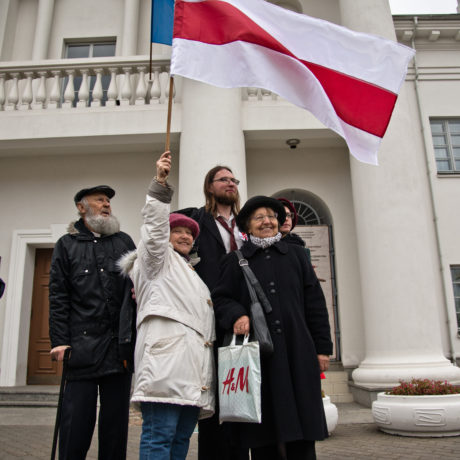
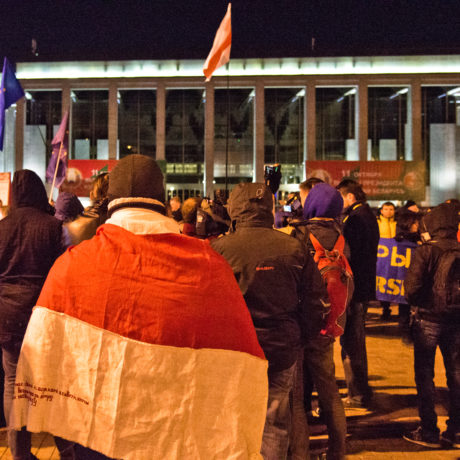
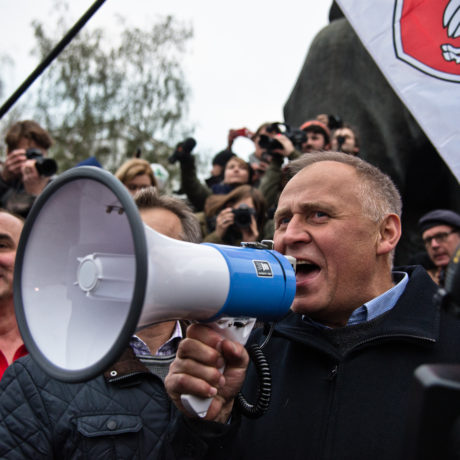
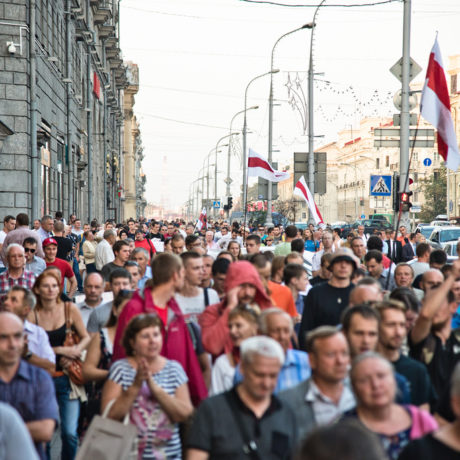
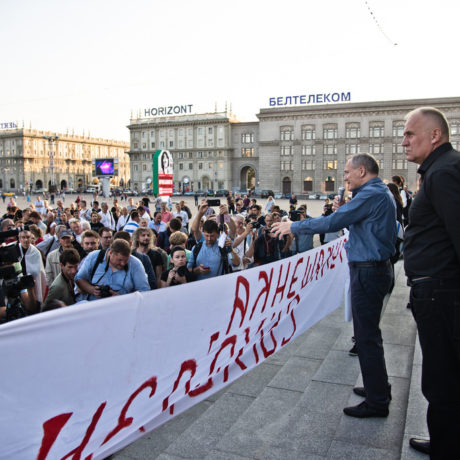
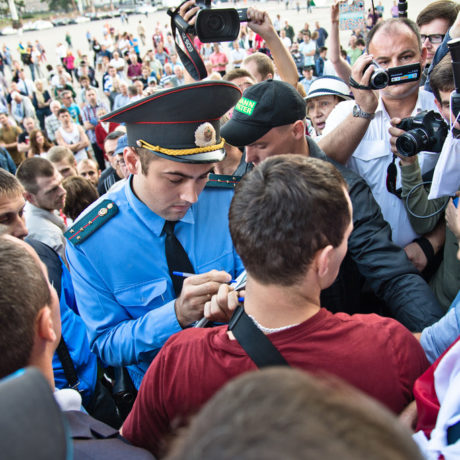
Timeline
- 1300-1795: Belarus is part of the Grand Duchy of Lithuania
- 1795: Becomes part of the Russian Empire
- 1918: Towards the end of World War One, Belarus proclaims its independence as the Belarusian National Republic.
- 1921: The Treaty of Riga divides Belarus between Poland and Soviet Russia.
- 1930s: Belarus suffers heavily from the purges of intellectuals and political opponents ordered by Soviet dictator Joseph Stalin. More than 100,000 people are executed in Belarus, and thousands more sent to labour camps.
- 1941 – 1945: Every fourth Belarusian is killed during the Second World War.
- 1960s: A policy of Russification relegates the Belarusian language and culture to second-class status.
- 1986: Belarus is heavily affected by the nuclear explosion at Chernobyl.
- 1991: Belarus declares its independence as the Soviet Union breaks up.
- 1994: Alexander Lukashenka wins the first presidential election.
- 1996: An agreement to create an economic union is signed with Russia. President Lukashenka increases his powers again and extends his term in office.
- 2001: Lukashenka re-elected to serve second term. Opposition and Western observers say elections were unfair and undemocratic.
- 2004: Council of Europe condemns human rights abuses and EU imposes travel restrictions on number of senior officials.
- 2006, 2010, 2015: Lukashenka clings to power by falsifying elections and persecuting his opponents.
- 2014: Russia annexes Crimea. The first peace talks are held in Minsk.
- 2020: Mass protests follow allegations of rigging in the presidential election. The strongest wave of repression in the history of independent Belarus follows.
- 2022: Lukashenka allows Russia’s army to use the territory of Belarus to launch attacks on Ukraine.
